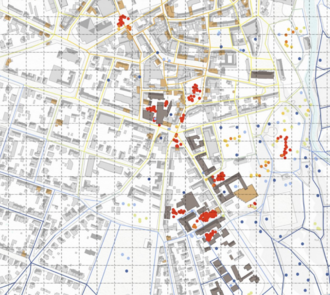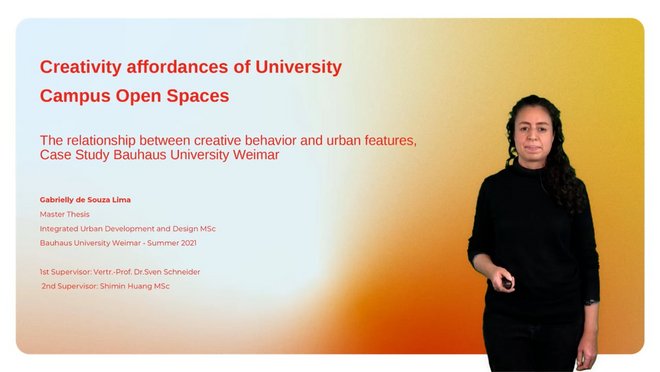
Creativity Affordances of University Campus Open Spaces
Master Thesis by Gabrielly de Souza
Study Programme Integrated Urban Development & Design
2021
In this Master Thesis Gabrielly de Souza investigates which spatial features affect creative behavior on the campus of the Bauhaus-University Weimar.

Creativity Affordances of University Campus Open Spaces - Gabrielly de Souza Lima (IUDD Thesis, 2021)
Click the Play button to load and view external content from Vimeo.com.
Automatically load and view external content from Vimeo.com (You can change this setting at any time via our »Data protection policy«.)
Over the past decades, the university campus evolved from essentially training facilities into the core of the knowledge economy through strategic spatial development. According to previous research, campuses have their role in such socioeconomic structure by promoting knowledge creation and creativity, with current scientific investigations correlating the spatial features and their relationship to knowledge sharing and other creativity-related behaviours, also referring to the spatial context as knowledgescapes.
This thesis presents an investigation, which later could relate to similar contexts, as the examination of students' creative experience at the inner-city campus of Bauhaus University Weimar. It contributes to the existing knowledge by investigating whether there are patterns of how interactions and behaviours related to creativity occur specifically within the open spaces of educational campus. This is by looking at which and how the physical features of campus open spaces affect the user's creative behaviour, doing so from the perspective of existing research approaches that relate physical space as an affordance for human behaviour.
